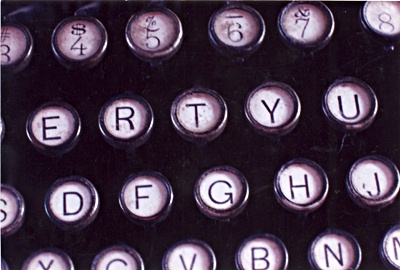All Nonfiction
- Bullying
- Books
- Academic
- Author Interviews
- Celebrity interviews
- College Articles
- College Essays
- Educator of the Year
- Heroes
- Interviews
- Memoir
- Personal Experience
- Sports
- Travel & Culture
All Opinions
- Bullying
- Current Events / Politics
- Discrimination
- Drugs / Alcohol / Smoking
- Entertainment / Celebrities
- Environment
- Love / Relationships
- Movies / Music / TV
- Pop Culture / Trends
- School / College
- Social Issues / Civics
- Spirituality / Religion
- Sports / Hobbies
All Hot Topics
- Bullying
- Community Service
- Environment
- Health
- Letters to the Editor
- Pride & Prejudice
- What Matters
- Back
Summer Guide
- Program Links
- Program Reviews
- Back
College Guide
- College Links
- College Reviews
- College Essays
- College Articles
- Back
The Curse of a Digital Society
With Texting, e-mailing, and social networking, Americans have turned over their personal connections with other to their keyboards. These options seem to make everything easier. They are faster and less strenuous than sitting down to hand write a letter, even though communicating digitally is less thoughtful and personal. Schools across America are beginning to leave behind the curriculum for cursive handwriting, debating whether script is even necessary anymore in today’s digital society. American schools should continue to teach cursive because students can benefit educationally and personally from knowing how to write in cursive.
When I think back to my elementary days, I remember the two things I dreaded the most- typing lessons and cursive lessons. However, both proved most beneficial to my education today. I am required to type on a standard keyboard everyday in my life, but I also take pride in my cursive writing, which I use to take notes with everyday in class. This is why I was astonished when I read in The New American Online that cursive is no longer being taught in schools anymore; instead teachers focus more on typing. At first, typing seems like the most useful writing tool that students could learn as reliance on technology in school increases. In my high school, some students are even given tablets to take notes on and complete homework. Most essays I complete in school are required to be typed and in print.
In the bustle of all these digital options, people are beginning to forget about cursive as a whole. They are not realizing that typing does not teach students anything beyond the hand movements and memorization of the keyboard. On the other hand, The New American Online article mentions that learning cursive has long-lasting effects that give students an advantage in their education. According to the article, learning to write cursive script also helps reading, spelling, and comprehensions skills. The technique required in connecting the letters of a word forces students to process words left to right more easily. Cursive also helps students to group letters of word together in the correct sequences more than typing would. After learning this, I was quick to attribute my strength in English class to my strong cursive handwriting.
In addition to educational benefits, cursive also instills a diligent work ethic in students. When writing in cursive, mindlessness is not an option. There is not a backspace key when writing in script like there is on a keyboard. If the shape of every letter is not exact, the letters will begin to all look alike, leaving the script illegible. While students are learning to write in cursive they are forced to be precise and have to practice extensively. Even after they have learned how write, students must think more about what they are actually writing. If cursive writing is left out of schools and replaced with typing, work will become less thoughtful as students will just go through the motions of typing. When typing, fingers bounce around from key to key at a rapid pace, almost becoming an unconscious act. Conversely, when carefully writing smooth and connected words in script, students have to think more about what they are writing. In result of writing in cursive, students will be more used to putting more thought and effort into their work.
Even if Americans realize the benefits of cursive, typing and digital print will continue to be prevalent in our lives. Still, only relying on typing as method of writing illustrates the lack of motivation to exceed expectations and be unique in our society. Rarely do Americans strive to perfect cursive, instead they settle for average- typing. People would rather type in the standard size twelve Times New Roman font than write in their own personal handwriting. We are too caught up in the technologic advancements and the digital blur of life to focus in on the little details. We could care less about the flawlessness and precision that cursive requires because we have typing to fall back on. If American schools continue to teach cursive, students will learn to rise above standards instead of conforming to the laziness of typing. As we disconnect the letters of cursive, we are disconnecting ourselves from our own person, falling victim the norm of society.

Similar Articles
JOIN THE DISCUSSION
This article has 1 comment.
